Lawyer Prof. Ernst JAEGER (1869-1944): Certificate from the University of LEIPZIG
Description
– See more pictures below! –
You are bidding on one Certificate from the University of Leipzig from 1906.
Issued and signed by Legal scholar Ernst Jaeger (1869-1944) for the student. jur. Walter Uhlig from Leipzig, who was in the SS in 1906 Civil litigation internship for beginners at Jaeger.
Format: 16.3 x 21 cm.
Attached are 3 written works by the student Walter Uhlig In the course of this internship, each one was corrected by hand, Appraised and signed with Kürtzel by Ernst Jaeger.
Scope: ins.18 written pages (33 x 21 cm).
Paper folded lengthways in the middle, with only the right column written on by the student Uhlig; Some of Jaeger's comments are on the left column.
About the student Walter Uhlig (Source: his own curriculum vitae and certificates from his estate): Walter Gerhard Uhlig, b. on the 21st December 1884 in Leipzig-Reudnitz as the son of the teacher Hermann Uhlig. He married on the 6th. May 1918 Käte Caspars, daughter of the Wernigerode-born merchant and state lottery collector Friedrich Caspars.
After visiting the VIII. Citizens' school in Leipzig-Reudnitz and the Leipzig Viktoriaschule from 1904 studied law in Leipzig (with Prof. Karl Binding, Eduard Hölder, Ernst Jaeger, Ludwig Mitteis, Emil Strohal and Adolf Wach), where he also heard lectures on economics. In the summer of 1907, he wrote his dissertation "On the right of separation of the wife in the event of the husband's bankruptcy", followed by traineeship at the Leipzig and Reichenau district courts, at the public prosecutor's office and the Leipzig regional court as well as at various law firms. In June 1912 2. legal state examination. From November 1912 to February 1913, legal assistant to the board of directors of the International Construction Exhibition in Leipzig in 1913. He then joined the municipal administration: council assessor in Roßwein, with the city council in Olbernhau and Döbeln (Sept. 1914), in September 1915 to Leipzig (police office, legal assistant at the tax office and the theater department, managing director of the "Heimatdank" association). At the beginning of 1917 he received the War Merit Cross for his service in expanding welfare for war victims and war survivors. In October 1917, Uhlig became a paid city councilor and deputy mayor in Döbeln. He held this position until at least. 1920 (later documents were not in his estate).
Condition: Certificate: Strong paper stained and with creases. Work: Paper folded lengthwise in the middle, slightly browned and slightly wrinkled. Into the. with a bit of a cellar smell. Please also note the pictures at the end of the item description!
At the same time, I am offering further documents from Walter Uhlig's estate!
Pictures
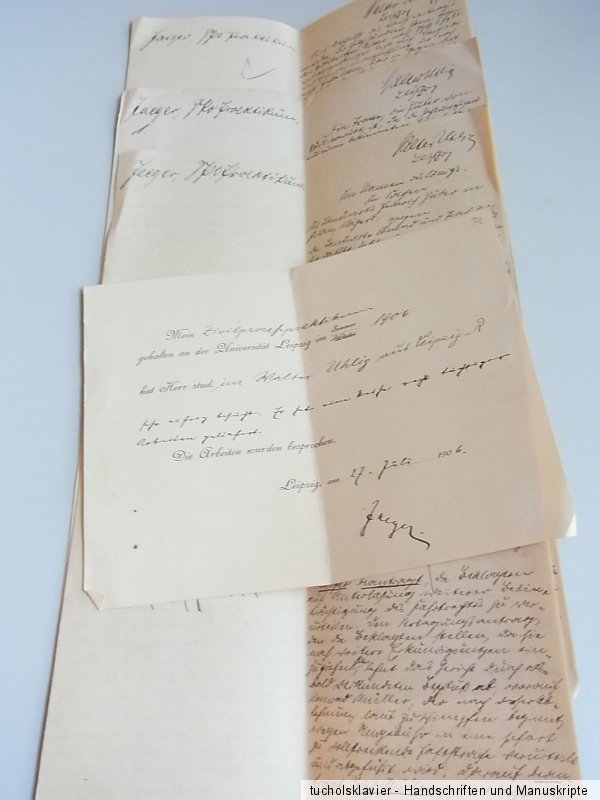
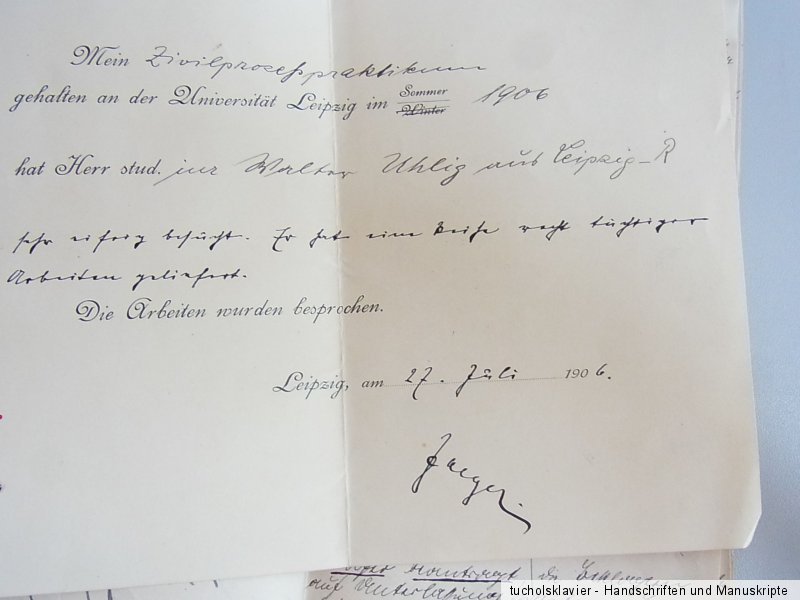
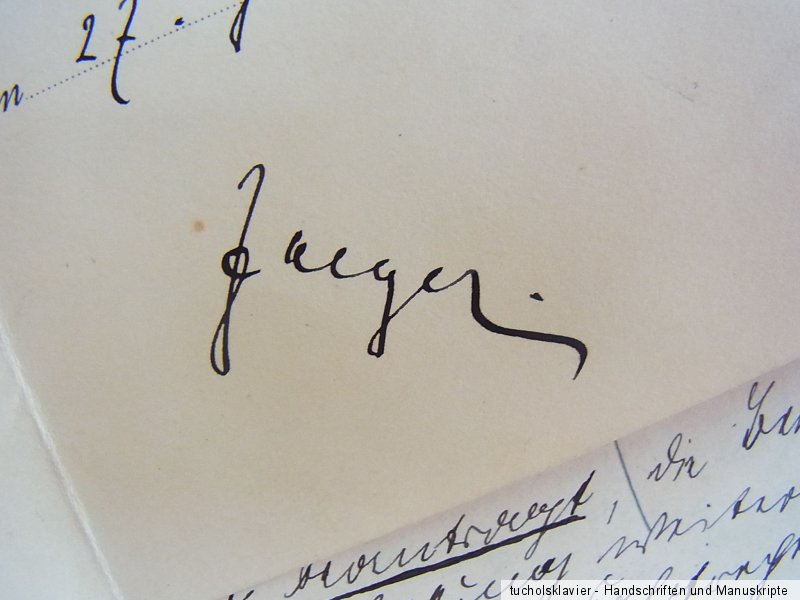
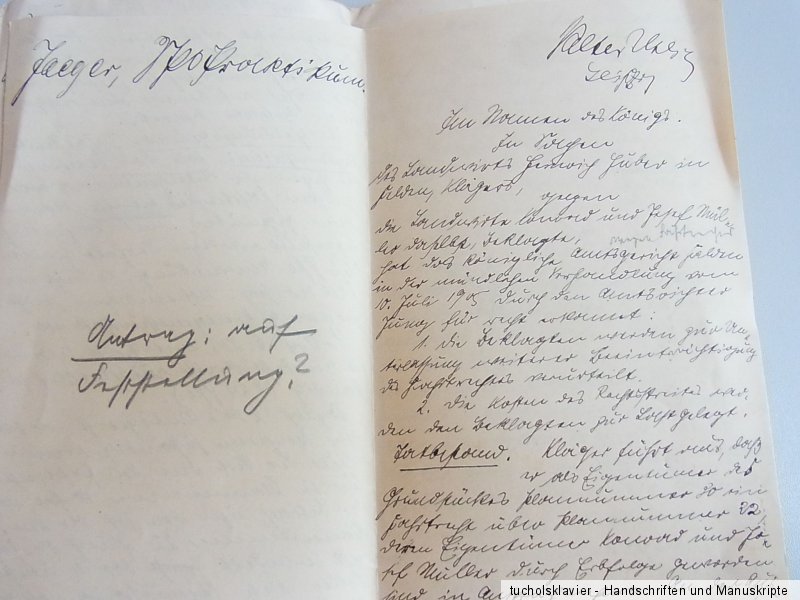
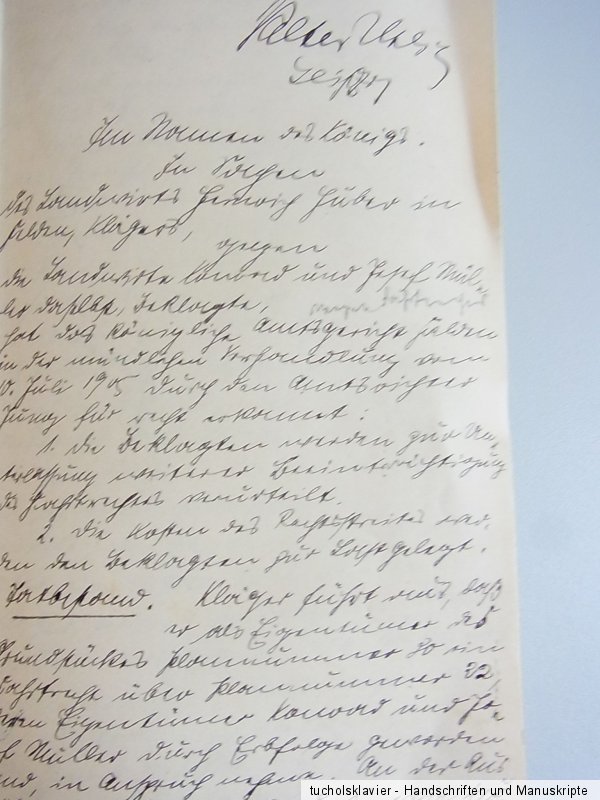
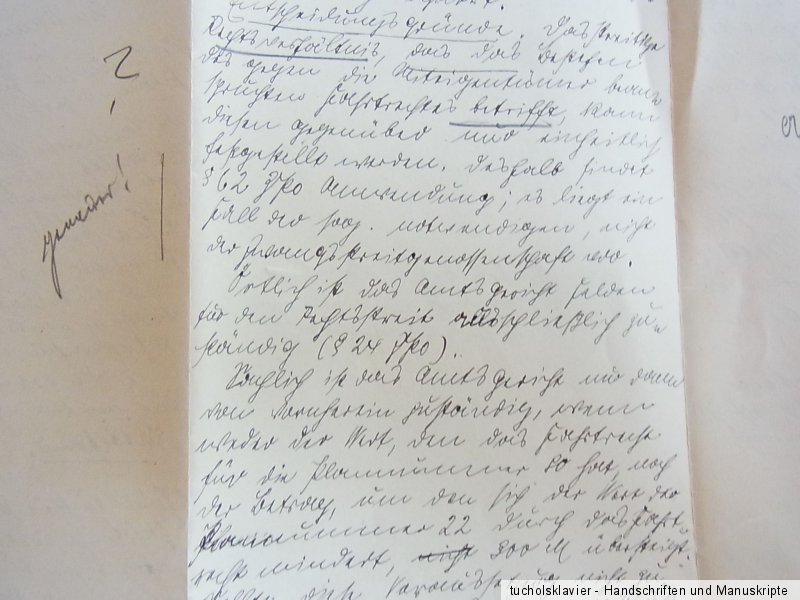
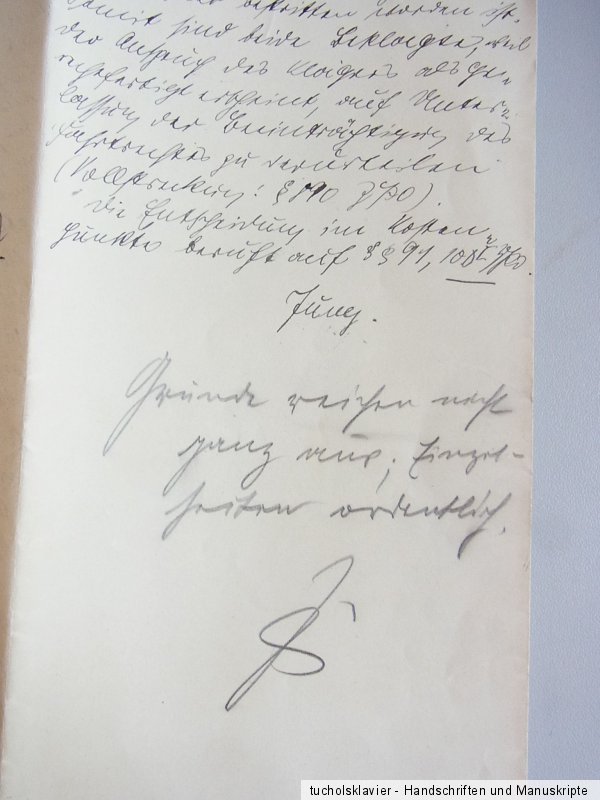
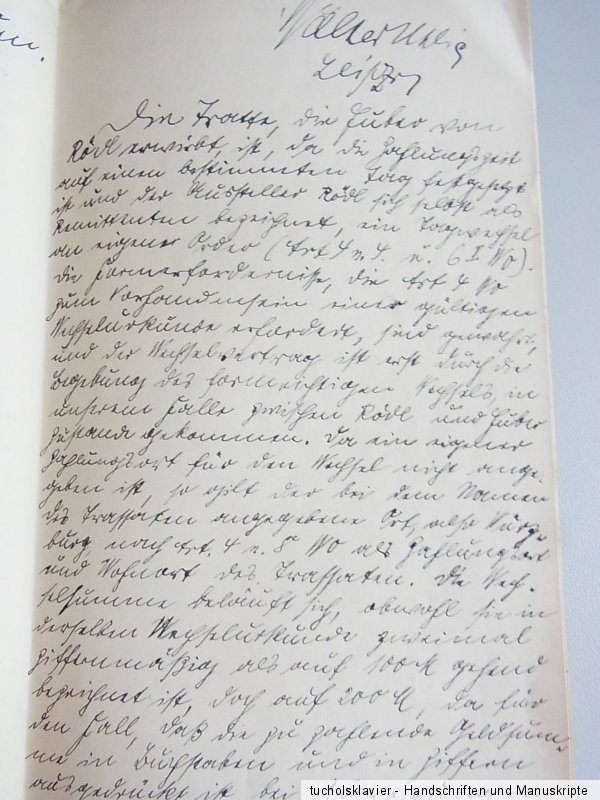
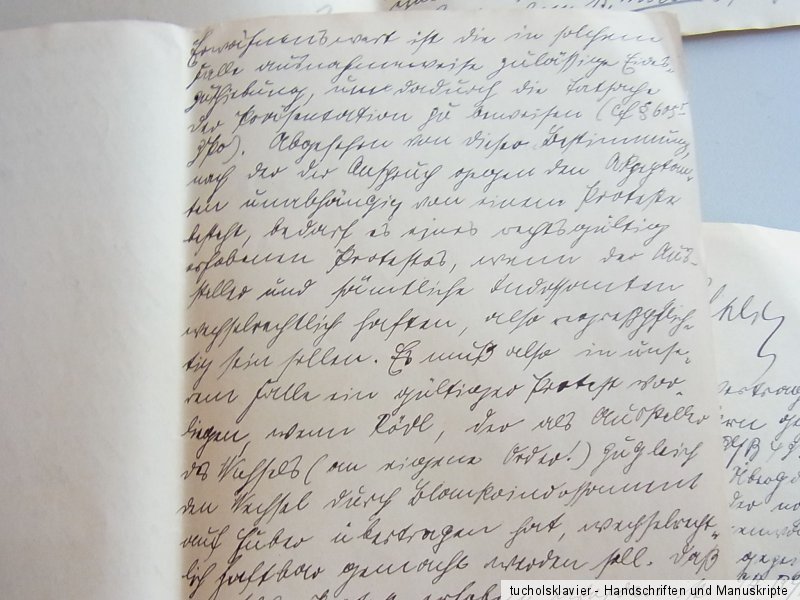
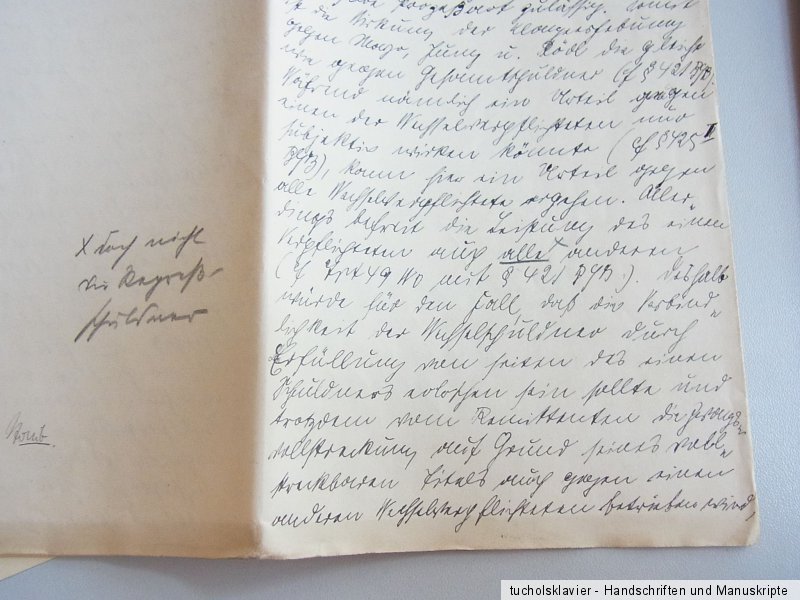
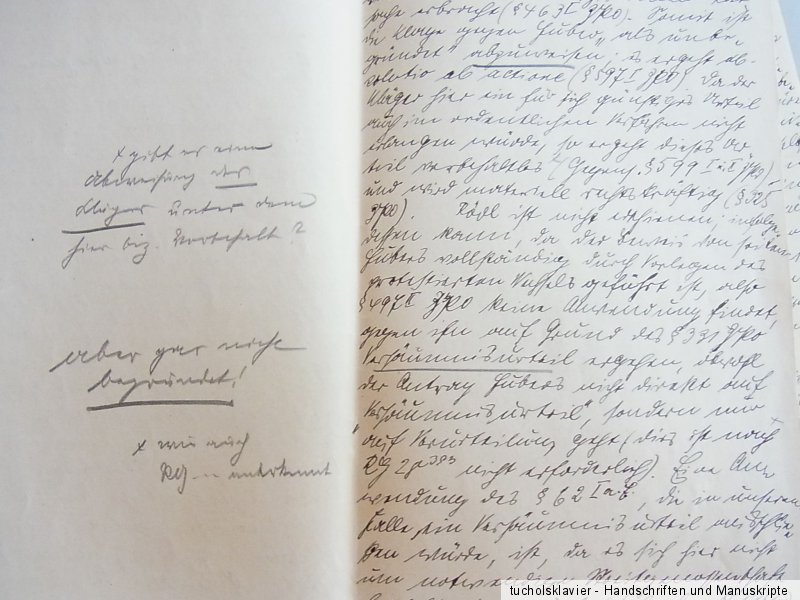
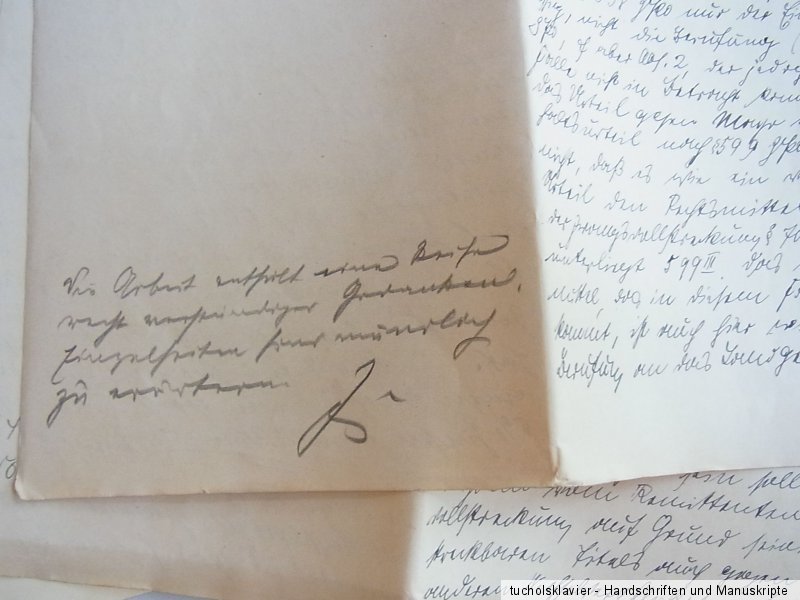
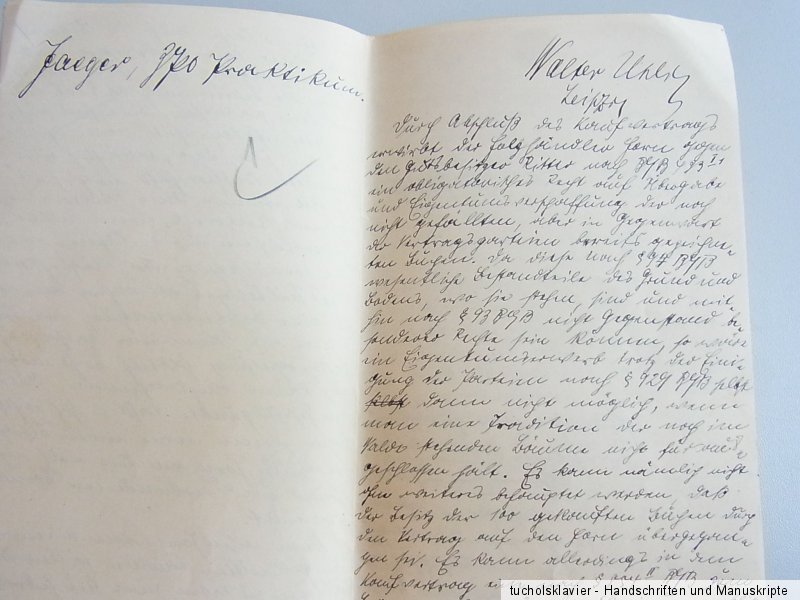
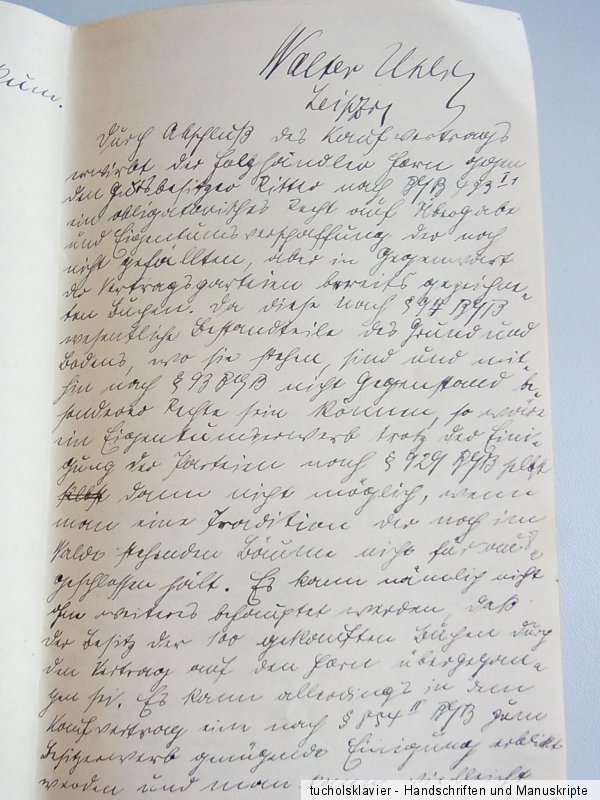
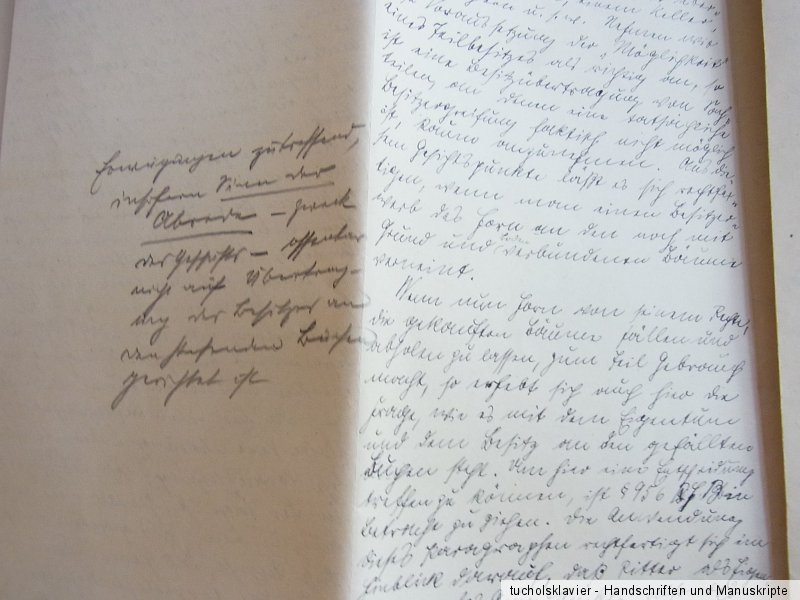
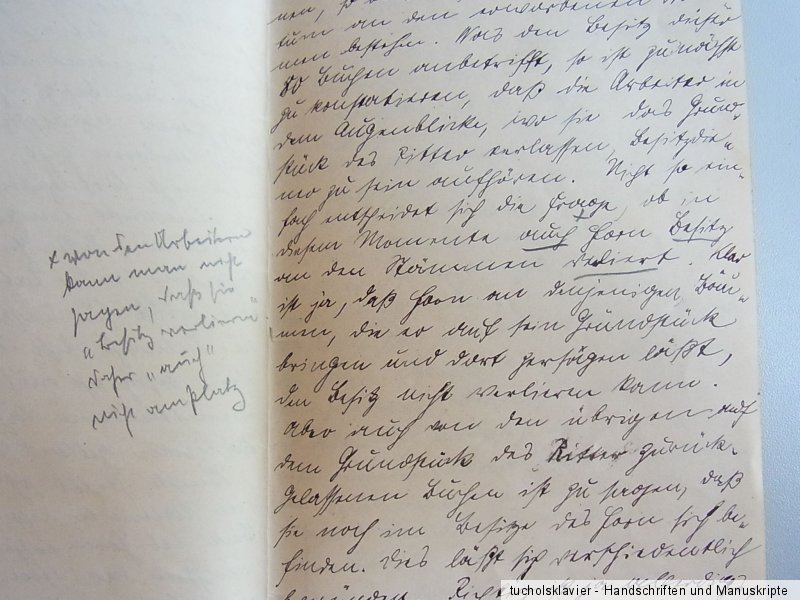
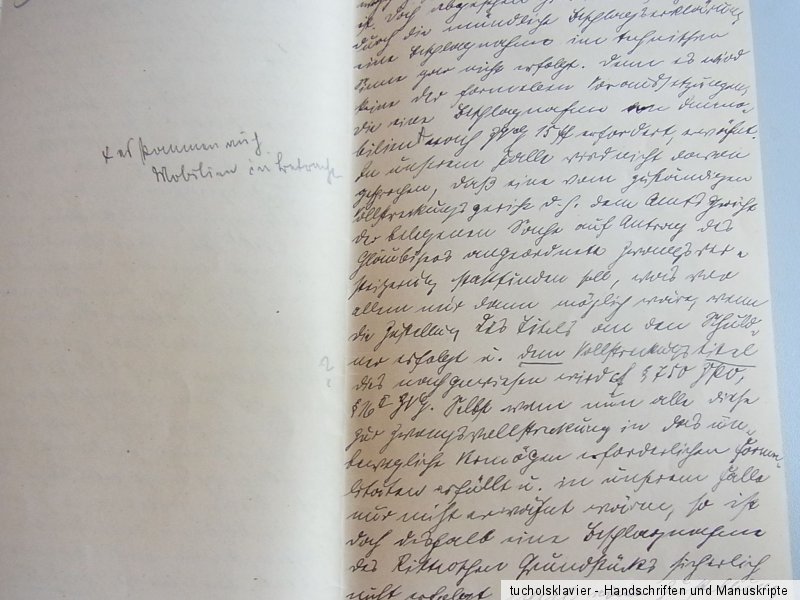
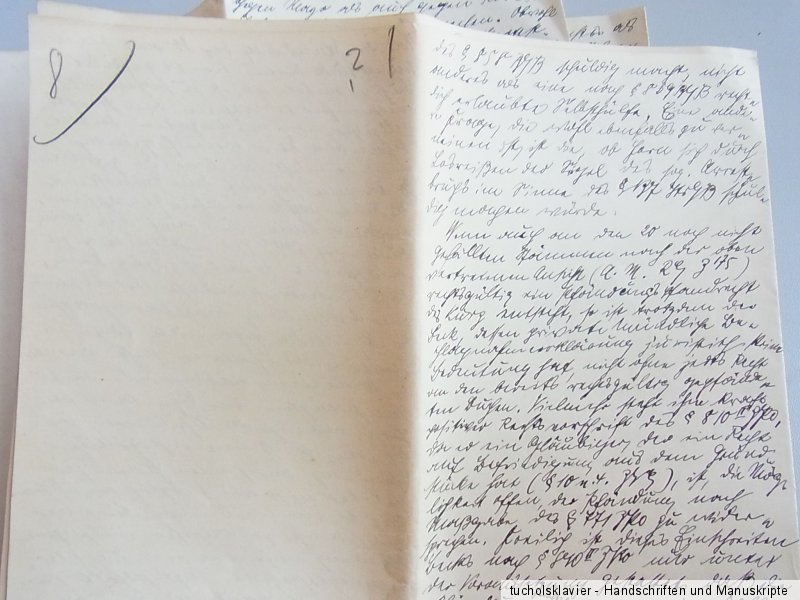
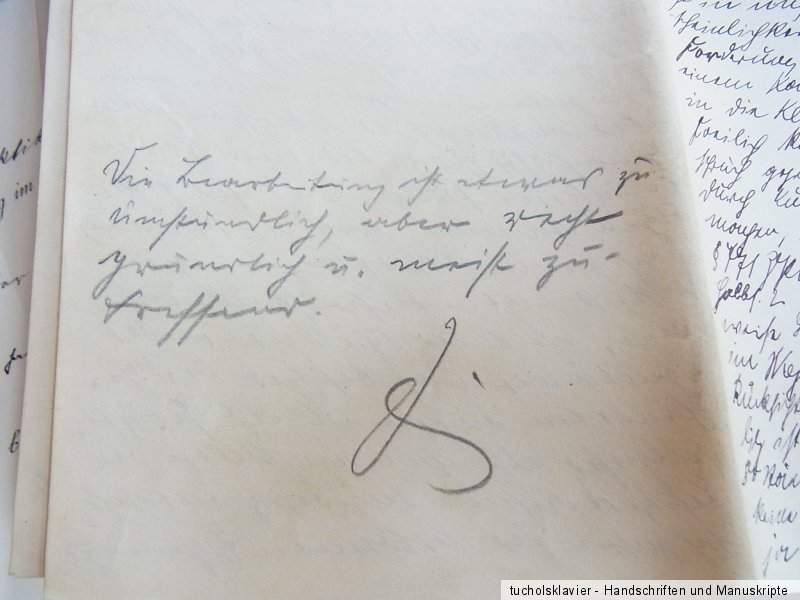
TRIXUM: Mobile-optimized auction templates and image hosting
About Ernst Jaeger (Source: wikipedia & NDB):
Ernst Hermann Jaeger (* 22. December 1869 in Landau in the Palatinate; † 12. December 1944 in Leipzig) was a German legal scholar.
Life: Jaeger studied law in Strasbourg, Heidelberg, Leipzig and Erlangen. In 1892 he passed his first state examination and in 1895 the second state examination. He then worked initially in the Bavarian Ministry of Justice in Munich and as a district judge in his hometown of Landau in the Palatinate. Because of his work The Bankruptcy of the Open Trading Company (1897), he was appointed to an extraordinary professorship in Erlangen in 1899 without the habilitation process. In 1900 he moved to a full professorship at the University of Würzburg. In 1905 he accepted an appointment to the chair of civil procedure law at the University of Leipzig, where he worked until his retirement in 1935.
Jaeger gained lasting importance above all with his work on bankruptcy law. In his dissertation with Konrad Hellwig from 1893, he already dealt with a topic of bankruptcy law. In 1901, at the suggestion of Hermann Staub, he founded the major commentary on the bankruptcy code named after him (now: Jaeger, Bankruptcy Code), which he was the sole author of until the 7th. Edition (1936). After Jaeger's death, Friedrich Lent and Friedrich Weber continued the commentary before Wolfram Henckel and Walter Gerhardt took over as editor. Jaeger's work also found international recognition beyond Germany; For example, his conceptual work formed the basis for the renewed Japanese bankruptcy code of 1922.
factories
The requirements for estate bankruptcy, Erlangen 1893 (dissertation)
The bankruptcy of the general partnership, Tübingen 1897
Bankruptcy regulations, Berlin, 1. ed. 1901 to 7. ed. 1936 (major commentary)
Textbook of German bankruptcy law, Berlin, 1932
Jaeger, Ernst, lawyer, * December 22, 1869 Landau (Palatinate), † December 12, 1944 Leipzig. (evangelical)
Genealogy: V Jakob Georg (1833–77), Kaufm., S d. Farmer Georg Jakob and Anna Maria Röhm;
M Friederika Elisabetha (1838–69), T d. leather dealer Georg Karl Simon and Friederike Pistor;
? 1896 Wilhelmine Klara Schmidt (* 1874) from Landau.
Life: J. studied law and political science in Strasbourg, Heidelberg, Leipzig and Erlangen from 1888-92. In 1893 he received his doctorate at →K. Hellwig in Erlangen with the dissertation “The requirements of an estate bankruptcy”. After the 2nd He was in Bavaria for a few years for his state law examination (1895). Ministry of Justice and was then appointed district judge in Landau. Due to the lasting impression that his work “The Bankruptcy of the Open Trading Company” (1897) left, he was accepted as an associate in 1899 without a habilitation process. Professor at the University Erlangen called. The following year he went to Würzburg as a professor of civil law and civil procedural law.
Inspired by H. Staub, J. dealt with a systematic presentation of the entire bankruptcy law, the result of which was the 1. Edition of his commentary on the bankruptcy regulations appeared. This commentary, which is characterized by its high academic standard but also by its practical applicability, brought him an appointment to Leipzig in 1905, at what was probably the most prestigious German law faculty at the time. He remained full professor of civil law and civil procedure law until his retirement in 1935. J. was considered a capacity of international importance in the field of bankruptcy law, which is highlighted not least by the fact that the foundations of the renewed Japan. Bankruptcy regulations of 1922 are based on German law and were ultimately designed by J. His commentary on the Contestation Act (1905) was no less influential. The numerous editions of his “Collection of Reich Civil Laws” since 1900 speak for its popularity. As co-editor, J. also played a significant role in the design of the “Magazin f. Dt. Civil Procedure” and the magazine “Bankruptcy and Trusteeship”. – J's great importance for the development of research and practice, but not least for teaching, is based on the successful synthesis of systematics, legal logic, scientific methodology, the feeling for economic connections and necessities as well as the resulting practicality of his work Works.|
Awards: Dr. rer. pole. hc